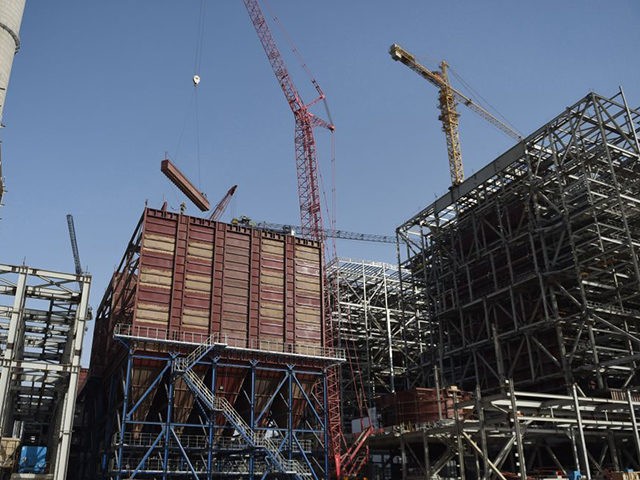Bloomberg News reported Wednesday that Pakistan is asking China for relief on the debt from constructing about a dozen power plants under China’s Belt and Road Initiative (BRI).
Bloomberg quoted an anonymous source who said Pakistani and Chinese representatives have informally discussed proposals for easier debt repayment, but Islamabad has not made a formal request yet. The Chinese Ministry of Foreign Affairs said it was not aware of any such discussions, and Pakistan’s energy agency did not reply to a request for comment on the report.
According to the Bloomberg report, the Pakistani government bit off more than it could chew by agreeing to buy a large number of power plants from China:
An enormous build-out of Chinese-financed power plants in Pakistan, which was originally intended to solve its electricity shortages, has resulted in a surplus that Islamabad isn’t able to afford.
[…]
While Chinese financing has helped Pakistan diversify fuel supplies, it has also resulted in a surplus of electricity, which is problematic for the government in Islamabad because it is the sole buyer and pays producers even when they don’t generate. To help tackle the issue, the government has negotiated with power plants, which produce roughly half of its electricity, to lower rates.
A request for BRI debt relief would hardly be unprecedented, as several of China’s other clients have encountered difficulty repaying their loans, especially after the Wuhan coronavirus pandemic crushed the world economy.
The United States has accused Beijing of practicing “debt trap diplomacy” or “debt imperialism” by luring developing nations into taking out huge BRI loans from Chinese banks for projects of dubious long-term profitability, building up an unsustainable debt load the Chinese can use as leverage to seize important national assets or leverage control over local politics.
China and Pakistan had a public falling-out over BRI debt last month, leading to the indefinite postponement of the annual China-Pakistan Economic Corridor summit. The major points of disagreement reportedly concerned China’s reluctance to loan Pakistan more money for railroad projects because Islamabad is already having trouble making payments. The Chinese were also said to be concerned about “local politics” delaying the return on China’s infrastructure investments.
Nikkei Asian Review (NAR) reported in January that the Chinese were worried about Pakistan accumulating too much debt and demanding relief that might inspire other BRI clients to demand concessions of their own.
Analysts told NAR that China prefers its customers to be indebted in ways that maximize Beijing’s control:
“China is much more comfortable deferring payments or providing new financing than it is offering concessional rates in the first place,” [German Marshall Fund senior fellow Andrew] Small told Nikkei. He said this approach provides Beijing with greater leverage and control even if they are willing to be very flexible at the back-end.
With host countries under pressure to repay at higher rates, China trades payment deferments in return for influence, which helps it get more favorable arrangements.
The dispute in January mostly concerned Pakistani railroad projects, but about two-thirds of Pakistan’s $33 billion in BRI financing concerns the energy sector.
Pakistan is also struggling to handle debts to the International Monetary Fund (IMF) for its power plants, which are notoriously poor at collecting payments from electricity customers, creating a dangerous spiral of individuals and agencies who owe each other huge sums of money, a condition dubbed “circular debt.”
Every provider in Pakistan’s complex, calcified state-owned energy sector is sitting on a mountain of invoices that will never be paid, many end users are essentially stealing electricity from the power companies, and no one has any good ideas for how to make anyone else pay up. Aggrieved creditors cannot call the police for help collecting their debts because law enforcement in Pakistan is largely provincial, but the power distribution companies are owned by the federal government. The surplus capacity of electricity far in excess of demand created by the BRI power plants has greatly exacerbated the circular debt problem.

COMMENTS
Please let us know if you're having issues with commenting.